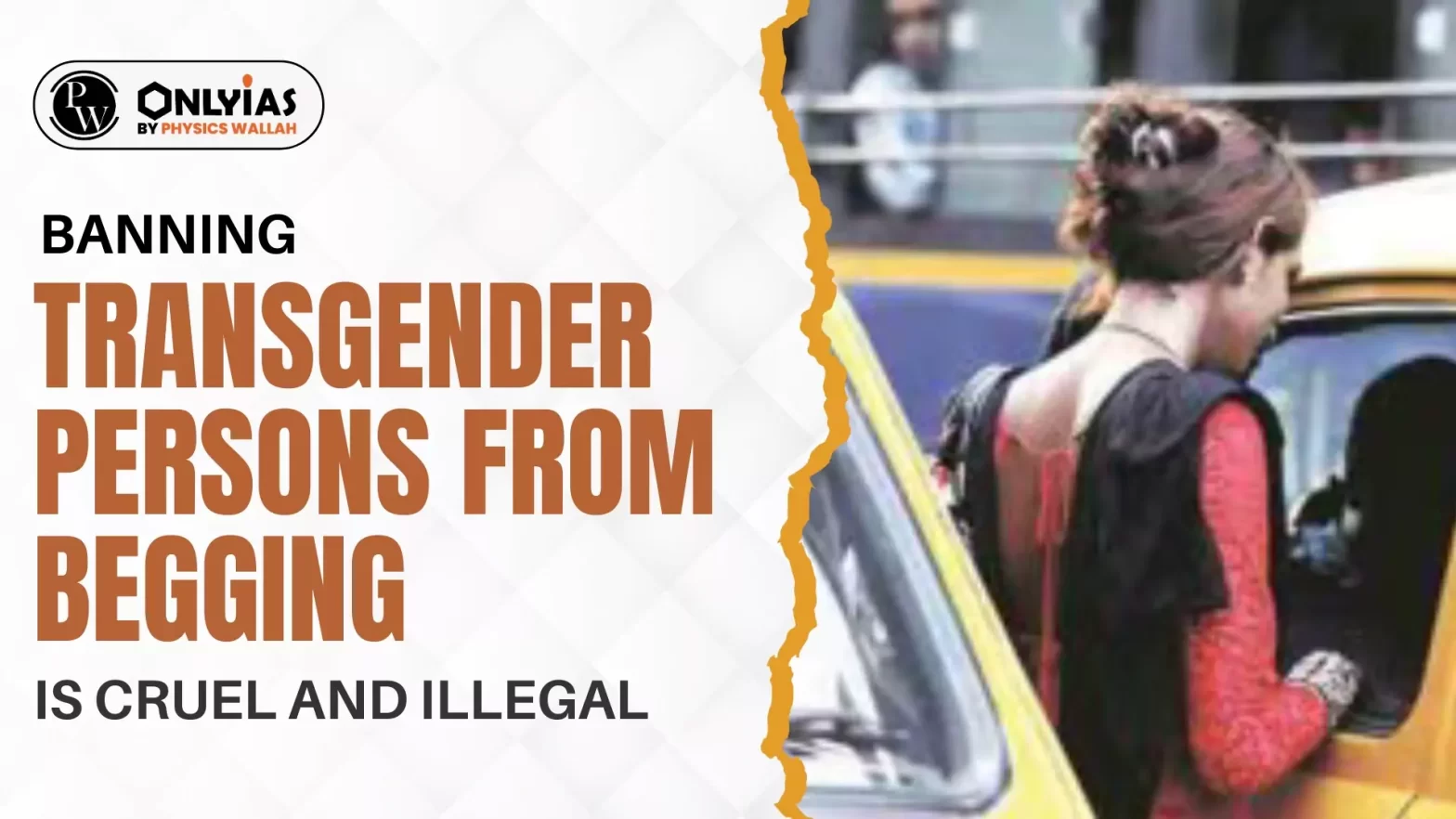Context
Recently, the Pune police commissioner has banned transgender persons from begging at traffic signals, private residences and other public spaces, hospitals, etc.
| Relevance For Prelims: Begging Problem In India, Article 15, The Transgender Persons (Protection of Rights) Act, Article 23.
Relevance For Mains: Decriminalizing Beggary, Issues with Transgenders |
Enroll now for UPSC Online Course
Pune Police Bans Transgenders From Begging At Signals
- Issuance of Bans in Pune and Nagpur: Via an order issued under Section 144 of the Code of Criminal Procedure, Pune police commissioner banned transgender persons from begging in various public spaces.
- A similar ban was previously imposed in Nagpur.
Constitutional Legality of Begging – A Brief Analysis
- Violation of Article 15: The ban specifically targets transgender individuals, potentially violating Article 15 of the Indian Constitution, which prohibits discrimination based on religion, race, caste, sex, or place of birth.
- Suhail Rashid Bhat v State of Jammu and Kashmir (2019): The Jammu and Kashmir High Court ruled against the prohibition of communicative activity by beggars in public spaces, stating it violated their rights under Article 19(1)(d) of the Constitution and criminalized poverty.
- Harsh Mander v Union of India (2018): The Delhi High Court struck down the Bombay Prevention of Begging Act, 1959, as applied to Delhi, holding that begging itself is not a crime. The court emphasized that begging is often a result of socio-economic deprivation.
Impact on Marginalized Groups
- Stigmatization and Discrimination: Bans and criminalization further stigmatize transgender individuals and perpetuate discrimination.
- Colonial Prejudices and Structural Discrimination: Policing of transgender individuals and the criminalization of begging are rooted in colonial prejudices, exacerbating the marginalization and violence faced by transgender communities.
Socio-Economic Rights and Progressive Realization
- Constitutional Obligations: The state must ensure the progressive realization of social and economic rights, enshrined in Part IV of the Constitution of India, including providing a living wage, maintaining standards of human health.
- Minimizing Inequalities in Income: Striving to minimize the inequalities in income, and endeavour to eliminate inequalities in status, facilities and opportunities, not only amongst individuals but also amongst groups of people.
- Need for Emancipation Schemes: Scholarships, reservations, and other welfare initiatives are essential to address the socio-economic vulnerabilities faced by transgender individuals and other marginalized groups.
Enroll now for UPSC Online Classes
Conclusion
Legal precedent and socio-economic considerations emphasize the need for supportive measures rather than punitive measures to address the root causes of begging and marginalization.
Also Read: Rethinking Methods For Poverty Estimation In India
| Prelims PYQ (2020):
In India, Legal Services Authorities provide free legal services to which of the following type of citizens?
1. Person with an annual income of less than Rs. 1,00,000
2. Transgender with an annual income of less than Rs. 2,00,000
3. Member of Other Backward Classes (OBC) with an annual income of less than Rs. 3,00,000
4. All Senior Citizens
Select the correct answer using the code given below:
(a) 1 and 2 only
(b) 3 and 4 only
(c) 2 and 3 only
(d) 1 and 4 only
Ans: (a) |

